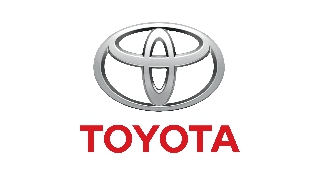TOYOTA BALTIC AS
Activity history
Company management, team and contacts
TOYOTA BALTIC AS current status
This company's branding has already reached 13,411 peopleand his is followed by 142 Storybook users.On average, the company has been rated 4.3 points.and commented 12 times.
's activity report 2022
Russia's military aggression in Ukraine significantly affected the economies of the Baltic states, leading to an energy crisis and creating a high inflationary economic environment in all Baltic states. As a result of the aftermath of the COVID-19 pandemic, the smooth operation of global supply chains was still hampered and the shortage of raw materials (including semiconductors) also affected the car market in the Baltic states (Estonia, Latvia, Lithuania), which fell by 7.9% in the 2022 calendar year compared to 2021.
calendar year.
During the financial year, 73,728 new passenger cars and commercial vehicles (excluding heavy trucks and buses) were registered in the Baltic states, which is 4.0% less than in the previous financial year (2021/2022: 77,111), as the COVID-19 pandemic and supply chain-related factors affected the car market throughout the financial year. During the financial year, a record number of new Toyota and Lexus vehicles were registered – 15,102 vehicles (2021/2022: 14,723) and the consolidated market share of Toyota and Lexus grew to 20.5% (2021/2022: 19.1%) thanks to our strong retail network and increased consumer interest in hybrid electric technology, which is environmentally friendly and also a practical solution to keep up with the gradual electrification of the car market. The importance of hybrid electric technology in the sales of new Toyota and Lexus vehicles reached 63.6%.
In the 2022/2023 financial year, Toyota Baltic AS's sales revenue was 386,293,667 euros (2021/2022: 361,931,091 euros) thanks to the growth in car sales volume and rising sales prices, the latter being due to the increase in raw material prices. Despite
the decline in the volume of the Baltic car market, Toyota Baltic AS achieved good profitability thanks to the growing demand for hybrid electric vehicles. Toyota's range of hybrid electric technology models expanded with the introduction of the new compact SUV
Toyota Corolla Cross. The growth in profitability was also supported by the relatively rapid recovery of Toyota's production capacities and car deliveries from the effects of the COVID-19 pandemic, being more successful in this respect than the market average. The range of Lexus electric vehicle models was supplemented by the introduction of the new generation Lexus RX, which added a plug-in hybrid (Plug-in hybrid electric) in addition to hybrid electric power sources. New digital tools and processes enabled the quality of sales service to be improved and marketing activities to be made more efficient. In 2022/2023.
the company achieved a net profit of 16,776,318 euros (2021/2022: 15,989,679 euros).
Russia's military aggression in Ukraine continues to create uncertainty in economic development directions and in the confidence of companies and consumers. Therefore, a decrease in car demand is forecasted for 2023 compared to the previous financial year. The main factors are high inflation and a rapidly grown Euribor compared to the average of the last 5-10 years. However, the company has a strong order portfolio at the beginning of the 2023/2024 financial year and we forecast a sales revenue growth of 3-5% compared to the previous period. Due to the continued high pressure on sales costs, we forecast a slight decline in profitability in the 2023/2024 financial year, but we still believe that Toyota Baltic AS will show good profitability also in the 2023/2024 financial year.
The main goal of the company for the 2023/2024 financial year is to continue socially responsible, economically sustainable and profitable activities, supporting the spread of hybrid and electric technology and providing the best customer service through authorized Toyota and Lexus sales and service networks for both private and business customers. Both Toyota and
Lexus will introduce new electric vehicles Toyota bZ4x and Lexus RZ in the 2023/2024 financial year.
In the 2023/2024 financial year, Toyota Baltic AS plans investments of over 1.0 million euros (2022/2023: 0.9 million euros)
for the acquisition of new Toyota and Lexus vehicles for marketing activities and product training purposes. Smaller investments are also planned in connection with digitization and other efficiency-enhancing projects.
Toyota Baltic AS participates in Toyota's global group banking system and during the reporting year the company only deposited in the group account. The interest rate conditions applied to the group account apply on similar principles to all
companies operating in the European Economic Area belonging to the Toyota group, including Toyota Baltic AS.
Toyota Baltic AS pays significant attention to the management of working capital in order to effectively mitigate risks related to financial liquidity. In managing the company's liquidity, the payment deadlines of claims and obligations are carefully assessed and the quantity and quality of stocks are analyzed.
Management and Supervisory Board
The member of the Management Board is Mika Rafael Elojärvi (since 01.01.2020). The members of the Supervisory Board are Dirk Tony De Man (since 01.07.2020),
Milena Tsvetkova (since 01.01.2023) and Pascal Richard Charles Ruch (since 01.01.2020). The remuneration of the Management Board and Supervisory Board, including social tax, totaled 277,919 euros (2021/2022: 253,232 euros).
Auditor
Toyota Baltic AS is audited by AS PricewaterhouseCoopers.
TOYOTA BALTIC AS contacts
The company's largest partners
Add a new partner
Dropdown
File a complaint
Choose the comment attribute that you think it contains:
You want to report an inappropriate comment.
Are you sure?
Are you sure you want to delete this article?





